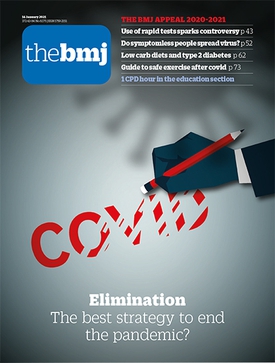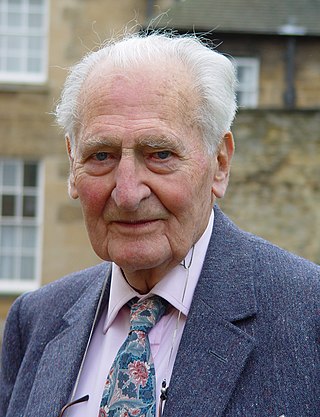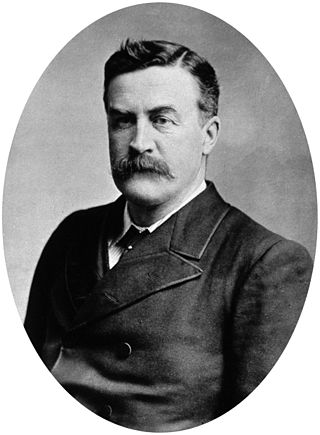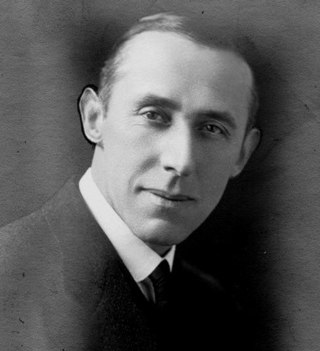
Sir Alexander Fleming was a Scottish physician and microbiologist, best known for discovering the world's first broadly effective antibiotic substance, which he named penicillin. His discovery in 1928 of what was later named benzylpenicillin from the mould Penicillium rubens has been described as the "single greatest victory ever achieved over disease". For this discovery, he shared the Nobel Prize in Physiology or Medicine in 1945 with Howard Florey and Ernst Chain.

Joseph Lister, 1st Baron Lister, was a British surgeon, medical scientist, experimental pathologist and pioneer of antiseptic surgery and preventive healthcare. Joseph Lister revolutionised the craft of surgery in the same manner that John Hunter revolutionised the science of surgery.

Tincture of iodine, iodine tincture, or weak iodine solution is an antiseptic. It is usually 2 to 3% elemental iodine, along with potassium iodide or sodium iodide, dissolved in a mixture of ethanol and water. Tincture solutions are characterized by the presence of alcohol. It was used from 1908 in pre-operative skin preparation by Italian surgeon Antonio Grossich.

The BMJ is a fortnightly peer-reviewed medical journal, published by BMJ Group, which in turn is wholly-owned by the British Medical Association (BMA). The BMJ has editorial freedom from the BMA. It is one of the world's oldest general medical journals. Previously called the British Medical Journal, the title was officially shortened to BMJ in 1988, and then changed to The BMJ in 2014. The journal is published by BMJ Publishing Group Ltd, a subsidiary of the British Medical Association (BMA). The current editor-in-chief of The BMJ is Kamran Abbasi, who was appointed in January 2022.

The British Doctors' Study was a prospective cohort study which ran from 1951 to 2001, and in 1956 provided convincing statistical evidence that tobacco smoking increases risk of lung cancer.

Sir Austin Bradford Hill was an English epidemiologist who pioneered the modern randomised clinical trial and, together with Richard Doll, demonstrated the connection between cigarette smoking and lung cancer. Hill is widely known for pioneering the "Bradford Hill" criteria for determining a causal association.

Sir William Richard Shaboe Doll was a British physician who became an epidemiologist in the mid-20th century and made important contributions to that discipline. He was a pioneer in research linking smoking to health problems. With Ernst Wynder, Bradford Hill and Evarts Graham, he was credited with being the first to prove that smoking increased the risk of lung cancer and heart disease.
Sir Richard Peto is an English statistician and epidemiologist who is Professor of Medical Statistics and Epidemiology at the University of Oxford, England.

Alice Mary Stewart, néeNaish was a British physician and epidemiologist specialising in social medicine and the effects of radiation on health. Her study of radiation-induced illness among workers at the Hanford plutonium production plant, Washington, is frequently cited by those who seek to demonstrate that even very low doses of radiation cause substantial hazard. She was the first person to demonstrate the link between x-rays of pregnant women and high cancer rates in their children. She was awarded the Right Livelihood Award in 1986 "for bringing to light in the face of official opposition the real dangers of low-level radiation."

Sir Alexander Ogston MD CM LLD was a British surgeon, famous for his discovery of Staphylococcus.
The Harveian Oration is a yearly lecture held at the Royal College of Physicians of London. It was instituted in 1656 by William Harvey, discoverer of the systemic circulation. Harvey made financial provision for the college to hold an annual feast on St. Luke's Day at which an oration would be delivered in Latin to praise the college's benefactors and to exhort the Fellows and Members of this college to search and study out the secrets of nature by way of experiment. Until 1865, the Oration was given in Latin, as Harvey had specified, and known as the Oratio anniversaria; but it was thereafter spoken in English. Many of the lectures were published in book form.
The Goulstonian Lectures are an annual lecture series given on behalf of the Royal College of Physicians in London. They began in 1639. The lectures are named for Theodore Goulston, who founded them with a bequest. By his will, dated 26 April 1632, he left £200 to the College of Physicians of London to found a lectureship, to be held in each year by one of the four youngest doctors of the college. These lectures were annually delivered from 1639, and have continued for more than three centuries. Up to the end of the 19th century, the spelling Gulstonian was often used. In many cases the lectures have been published.

The Lumleian Lectures are a series of annual lectures started in 1582 by the Royal College of Physicians and currently run by the Lumleian Trust. The name commemorates John Lumley, 1st Baron Lumley, who with Richard Caldwell of the College endowed the lectures, initially confined to surgery, but now on general medicine. William Harvey did not announce his work on the circulation of the blood in the Lumleian Lecture for 1616 although he had some partial notes on the heart and blood which led to the discovery of the circulation ten years later. By that time ambitious plans for a full anatomy course based on weekly lectures had been scaled back to a lecture three times a year.

Major-General Sir Robert McCarrison, CIE, FRCP was a Northern Ireland physician and nutritionist in the Indian Medical Service, who was made a Companion of the Indian Empire (CIE) in 1923, received a knighthood in July 1933, and was appointed as Honourable Physician to the King in 1935.
The Bradshaw Lectures are lectureships given at the invitation of the Royal College of Physicians and the Royal College of Surgeons of England. It is held on alternate years in rotation with the Hunterian Oration.
The Hunterian Oration is a lecture of the Royal College of Surgeons of England, named in honour of pioneering surgeon John Hunter and held on his birthday, 14 February, each year.

Walter Whitehead, FRCSE, FRSE, was a surgeon at various hospitals in Manchester, England, and held the chair of Clinical Surgery at the Victoria University of Manchester. He was president of the British Medical Association in 1902. He once claimed that knowledge of anatomy was an impediment to being a good surgeon but was himself a bold, innovative practitioner of international repute. His procedure for excision of the tongue using scissors and his formulation of a related ointment became a standard treatment, as did a procedure he developed for the treatment of haemorrhoids.

William Francis Victor Bonney FRCP FRCS was a prominent British gynaecological surgeon. He was described by Geoffrey Chamberlain as "a primary influence on world gynaecology in the years between the wars".

Leslie John Witts (1898–1982) was a British physician and pioneering haematologist.
Allan George Williams Whitfield (1909–1987) was an English physician.













